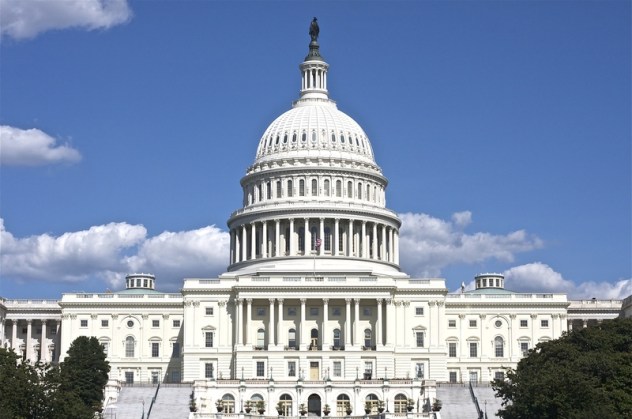Feds seize Backpage: A Triumph for Freedom
I think slavery is the next thing to hell. If a person would send another into bondage, he would, it appears to me, be bad enough to send him into hell, if he could. –Harriet Tubman
In 2010, craigslist closed its adult services section after increasing pressure from the public and lawmakers. The protestors against craigslist believed that the adult services section was nothing more than a facilitating avenue for human trafficking. While some believe, or rather try to justify, that prostitution takes place between consenting adults, more often than not, the person being prostituted is doing so against their will. By the time craigslist got rid of most of its human trafficking ads, Backpage had already been engaging in similar advertisements. The difference between craigslist and Backpage is that Backpage’s business model was heavily dependent on the sex trade. While Backpage may have had a handful of ads for used cars or other items, it made the vast majority of its money from the prostitution ads. When craigslist shuttered its adult services section, Backpage was there to pick up the pieces.
Backpage didn’t have nearly the amount of public pressure placed on them that craigslist did because they operated mostly under the public’s radar. While most people had heard of craigslist, only those in the know were really aware of Backpage’s existence and role in the sex trade. That doesn’t mean it escaped the notice of law enforcement as many high-ranking investigative officials across the country recognized Backpage for the problem it was. One such person was Sheriff Tom Dart of Cook County, Illinois. While he was later admonished for using official county letterhead in doing so, Dart was able to convince the major credit card companies to stop accepting payments for Backpage. Undeterred, Backpage then started accepting cash, Bitcoin, and gift cards as payment from people who wanted to place prostitution ads on their website.
Many law enforcement agencies and human rights groups tried to put a stop to Backpage in the courts, but time and time again Backpage would claim immunity under section 230 of the Communications Decency Act of 1996. That section of the CDA states that websites aren’t responsible for content their users publish. Backpage’s constant deflection of responsibility while continuing to make millions of dollars off the sex trade eventually garnered the attention of Congress. When Congress started to get involved in Backapge’s affairs could be cited as the beginning of the end for Backpage.
The first crack in Backpage’s facade began to show when a congressional investigative committee found evidence that seemed to implicate that Backpage would edit ads that contained keywords that could indicate the person being advertised could be a minor. Shortly after that, the Washington Post discovered that Backpage was allegedly using a Philippine company to seek out people posting prostitution ads on other sites and not only asked them to come to Backpage but tailored ads for them. This led to Congress passing two bills designed to put a stop to Backpage. The Senate passed the Stop Enabling Sex Traffickers Act, or SESTA, while the House passed the Allow States and Victims to Fight Online Sex Trafficking Act of 2017, or FOSTA. The combined FOSTA/SESTA bill is expected to be signed by the President soon.
However, Federal and State investigative agencies didn’t wait for FOSTA/SESTA as yesterday Backpage.com was seized by authorities. Anyone going to Backpage online yesterday was greeted with the Department of Justice’s declaration that Backpage had been seized as part of an enforcement action by not only the FBI, but also the US Postal Inspector’s Office and the IRS. It’s the IRS’s involvement that lead me to believe this is finally the last we’ve seen of Backpage. According to Wired Magazine, there has been a 93 count indictment against seven people involved with Backpage where one of the charges is money laundering. I would even hazard a guess that maybe Backpage and its cabal of founders may not have been exactly forthcoming on their taxes. Let’s not forget that this is almost the exact same way the Feds were able to finally take down Al Capone. One of those people charged in the indictment was Backpage co-founder Mike Lacey. I would imagine that indictments for Backapge CEO Carl Ferrer and co-founder Jim Larkin can’t be far behind.
Surprisingly, this is not the first instance of the Feds seizing a website that was involved in the facilitation of human trafficking. Back in 2014, the FBI seized MyRedBook which was a similar site to Backpage but on a much smaller scale. In that case the site owners were also accused of money laundering among child prostitution charges. That site’s owner was convicted and was forced to relinquish over a million dollars in cash and assets and was sentenced to 15 months in federal prison. Since Backpage operated on a much grander scale, I would imagine any potential fines and sentences would dwarf those of MyRedBook.
Since FOSTA/SESTA has yet to be signed into law, its detractors will say that we no longer need the legislation since Backpage was shut down without it. To those I say FOSTA/SESTA is still needed to prevent another website to rise from Backpage’s ashes like Backpage rose from craigslist’s. No woman or child ever deserves to be turned out online like so much property to be sold into sexual slavery over and over again on a constant basis.












Jennifer Smith 3:09 pm on April 7, 2018 Permalink
I agree, we do still need FOSTA/SESTA to be signed into law, to aid in the prevention of another festering cesspool like Backpage. Oh, I am sure that the sex traffickers will continue to find a way to advertise their abusive “wares”, but we need to make it as difficult for them as we can.